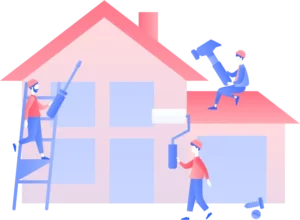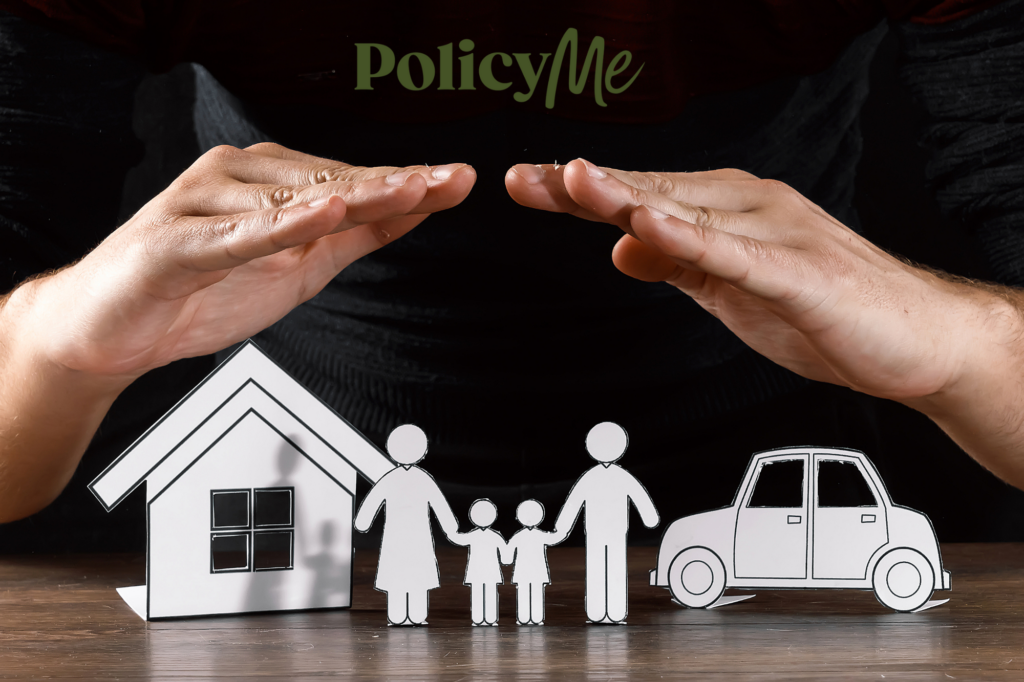A mortgage is a loan between you and a lender secured by a property–usually a home. While you must pay a deposit and down payment on any types of mortgage loans, the mortgage lender funds the remaining balance of the property’s purchase price. You are then responsible for making regular payments on the mortgage, which covers a portion of the principal amount, interest, insurance, and other fees.
When considering a mortgage, key terms and concepts include principal amount, interest, open or closed mortgages, fixed or variable/adjustable rate mortgages, and closing. Take the time to learn the related lending language and consider all types of mortgages available to ensure you get the best deal.
Advertisements
What are the different types of mortgage loans in Canada?
There are various mortgage loans to consider when you buy a home. Open mortgages have higher interest rates but allow you to pay back the mortgage lender or sell your property sooner. Closed mortgages have lower interest rates but limit when you can refinance the loan.
Portable and assumable mortgages can be transferred from seller to buyer quite easily. Conventional mortgages do not require mortgage insurance, while high-ratio mortgages do.
Fixed-rate mortgages hold their interest rate for the entire term of the mortgage. Variable or adjustable rate mortgages do precisely that–they adjust as the prime rate changes. You can also take on a collateral mortgage for renovations or additions or add a Builder’s Allowance or Purchase Plus to cover other construction, appliances, or move-in needs.
Types of loans

Canada has many different mortgage products to choose from. Some are safe, others are risky, and others hedge risk against different loans within one mortgage. Finding the right type of loan is critical when you need to borrow to purchase a home. It is also an important part of responsible personal finance.
Open mortgages
Open mortgages are helpful if you plan to pay your mortgage earlier, sell your home in the foreseeable future, or have extra money to put toward your mortgage payments. These types of mortgage loans typically have a higher interest rate than closed mortgages.
Closed mortgages
Closed mortgages generally have a lower interest rate than open mortgages. This type of mortgage is common for those planning to keep their home for the whole mortgage term. Lenders usually have a limit on how much of the mortgage you can prepay each year. And if you want to pay off your mortgage, there is usually a penalty of three months’ interest.
Portable mortgages
To port a mortgage means transferring the loan from one home to another. The mortgage is held by the same lender with the original terms.
Assumable mortgages
To assume a mortgage is as it sounds–transferring the home financing agreement from the seller to the new buyer.
Advertisements
Conventional mortgages
A conventional mortgage often has stricter lending rules and requires a down payment of at least 20% of the home’s purchase price. However, with a conventional mortgage, there is no need to carry mortgage default insurance.
High-ratio mortgage loans
A high-ratio mortgage loan requires a down payment of at least 5%. But you must carry mortgage default protection insurance. This expensive insurance covers your loan payments if you cannot make payments for a certain time or default on the loan entirely.
Fixed-rate mortgages
A fixed-rate mortgage holds the same interest rate throughout the term. The advantage of fixed-rate home financing is that it protects you against prime interest rate fluctuations. However, if you take out a mortgage with a fixed interest rate during a period of inflation, you might find that your monthly mortgage payment is higher than adjustable rate mortgages if the prime rate falls.
Variable-rate mortgages
A variable-rate mortgage loan is also known as an adjustable-rate mortgage. This type of mortgage is set against the Bank of Canada’s prime rate, usually with a plus or minus percentage point. This means that if the interest rate is 6%, and your variable-rate mortgage is “prime minus one,” your mortgage interest rate during that period of interest will be 5%.
There are risks associated with an adjustable-rate mortgage. You can win big when interest rates are low but lose just as much when they are high. Very few Canadians choose these types of home loans because of interest rate volatility. Fixed-rate mortgages offer much more predictability.
Hybrid mortgages
Hybrid mortgages are available in Canada. This type of mortgage splits the principal against a fixed-rate and a variable-rate loan, providing both security and potential benefits if interest rates are expected to fall.
Collateral mortgage
A collateral mortgage provides extra financing for projects such as new construction of additions and upgrades or renovations. You can get a loan equivalent to or greater than your property’s value. A collateral mortgage is essentially a second mortgage. It is useful if you are in dire financial need and find that home is your main asset.
Choosing the right types of mortgage loans

When choosing a mortgage, a significant consideration is whether to apply for a fixed- or variable-interest-rate loan. Canadians generally select a fixed-rate loan because the interest rate does not change during the loan term and allows you to budget the monthly payment easily.
A variable interest rate mortgage loan follows the prime interest rate in Canada, usually with a 1% discount. So, your monthly payments will adjust when the interest rates rise. When they fall, likewise, your loan payments will follow.
Long-term mortgage trends in Canada
Mortgage rates in Canada have trended downwards since 1980. They have levelled off in the past 25 years, with the lowest rates at the height of the COVID-19 pandemic. Since then, high inflation has caused a spike in the prime rate, which pushed fixed mortgage rates up. Variable-rate mortgages have also been highly impacted; monthly payments are higher than usual, though the prime rate should fall in 2024, providing some relief.
Amortization of mortgage principal and interest
Canada's average mortgage term is 25 years, though some mortgages can last 30 years. This is called the amortization period. If you choose a closed mortgage, you’ll likely refinance your mortgage every one, three, or five years. If you have an open mortgage, you will have more flexibility regarding refinancing. Payments can be made weekly, bi-weekly, or monthly. Lenders are generally very flexible in accommodating your schedule.
Mortgage loan insurance
Depending on the type of mortgage you choose and the amount of your down payment, you may be required to carry mortgage insurance. Mortgage insurance covers your mortgage in the event of non-payment or default. This is not a lender requirement; mortgage insurance is required by the Government of Canada through the Canadian Mortgage and Housing Corporation (CMHC).
Be sure to take out life and critical illness insurance. Critical illness insurance can be obtained for literal pennies on the dollar. With both policies, your loved ones will be well cared for in unfortunate instances.
Mortgage lenders
Mortgage lenders in Canada can be large or small banks, credit unions, private lenders, or alternative lenders. The National Housing Act regulates mortgages and allows the Government of Canada to participate in government-backed home loans.
There are a wide variety of lenders for you to choose from. Ensure that you shop around before committing to a mortgage loan.
Government incentives
The Government of Canada provides new home buyers with incentives such as:
First-Time Home Buyer Incentive
Home Buyers’ Amount
Home Buyers’ Plan
First Home Savings Account (FHSA)
These incentives include a shared equity plan that lets you finance a partial amount from the government, a tax credit, the ability to withdraw from RRSP accounts, and a tax-free savings account to save up for your first new home.
Home equity line of credit (HELOC)
Some lenders also offer a HELOC product. Your property secures a HELOC and allows you to borrow against your home’s equity. A HELOC has a flexible revolving debt structure, allowing you to borrow at a pre-determined loan limit when needed.
A home equity loan differs from a HELOC because it is a second mortgage that uses your property as collateral.
Reverse mortgages
Similarly, a reverse mortgage is similar to a HELOC and is available for individuals over 55 who want to borrow money for certain costs, such as healthcare expenses.
Advertisements
Real estate and property taxes
Before buying a home or property, you must always research the real estate market in your desired areas. Interview, vet, and hire a real estate agent to make the purchasing process smoother. Real estate agents often have access to exclusive properties or are at least “in the know” of what is available in your chosen markets.
Property taxes
Property taxes in Canada differ by municipality and are appraised and charged yearly based on your property’s value. Though taxes are never fun, remember that your tax revenue supports local services such as schools, fire departments, law enforcement, and more.
Conclusion
Home buyers must understand the differences between the various types of mortgage loans. Given a mortgage's inherent collateralization, a mortgage product is available for nearly everyone. However, you will find the best terms if you have a solid and steady income, credit score, debt-to-income ratio, and a long history of responsible debt management. However, some mortgage lenders specialize in more challenging cases, such as a lower credit score or freelance income.
Finding a fixed-rate mortgage with nesto
nesto is a leading Canadian mortgage broker specializing in finding home financing and refinancing options. An initial quote will not affect your credit score; completing their online form takes only a few minutes. You can apply for any presented options immediately or speak with one of their advisors for additional information.
nesto’s mortgage brokers do not work on commission like most other brokers. Instead, they are full-time company employees who aim to provide you with the best mortgage possible to meet your needs. With quick processing and the longest pre-approval interest rate hold times, you can shop around for a property knowing that your quoted interest rate will not change.
Advertisements




